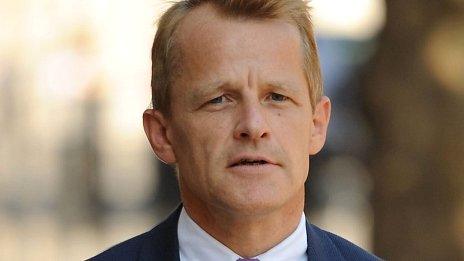Tory resit plan for pupils with poor Sats results
- Published
- comments
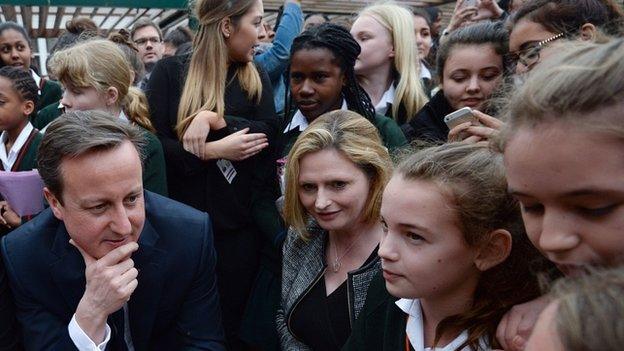
David Cameron says the resits will prevent children from falling behind in maths and English
Pupils in England who get poor results in their Sats at the end of primary school will face a resit in secondary school if the Conservatives form the next government.
It would mean 100,000 pupils taking a new test in English and maths during their first secondary year.
Prime Minister David Cameron promised parents "more rigour, zero tolerance of failure and mediocrity" in schools.
Labour has emphasised the quality of teaching as the way to raise standards.
"This is a desperate attempt by the Tories to try to overshadow their failures on school standards," said Labour's shadow education secretary, Tristram Hunt.
Nick Clegg, the Liberal Democrat leader and deputy prime minister, attacked Conservative education policy for an obsession with a "tiny handful" of free schools at the expense of "how you properly finance 24,000 schools across the whole school system".

The test resit plan from the Conservatives, which would be implemented next year, is aimed at making sure that pupils have not already fallen too far behind at the beginning of secondary school.
Catching up
Pupils who did not get good grades in the Sats tests taken by 11-year-olds in primary school would have to retake a test during their first year after moving up to secondary school.
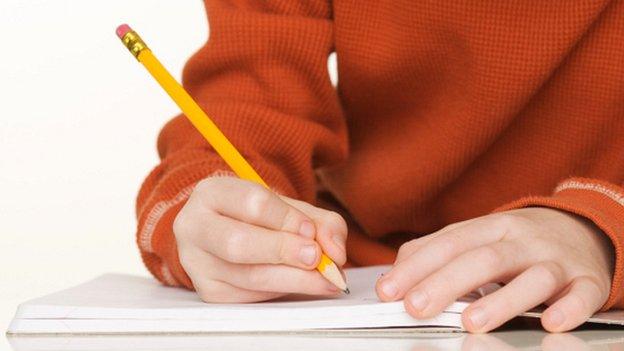
In last year's tests, 79% of pupils achieved the expected grades in reading, writing and maths.
The Conservatives argue that, too often, pupils who have slipped behind by this stage never catch up. Among those who fail to make the grade at the age of 11, they say only 7% go on to get the benchmark measurement of five good GCSEs, including English and maths.
There is already support for secondary schools of £500 per pupil who has struggled in their primary school tests.
The resit would be a standardised test in maths and English, marked by teachers rather than external examiners. There could be up to two retakes, in the spring or summer terms, and the number of pupils who had failed the retakes would be published as part of the league table data.
Pupils with special needs would not have to take the resits.
'Could be useful'
Mr Cameron said: "There is no job that doesn't require English and maths, and this is about making sure every child gets the best start in life and that our country can compete in the world."
Education Secretary Nicky Morgan told Radio 4's Today programme that of the children who left primary school unable to read, write or add up properly "only 7% of those pupils are likely to get five good GCSEs which will set them up for life - that's compared to 72% who get five good GCSEs who do reach those required standards.
"English and maths are the absolute basics, the building blocks of other education, other achievements in life, and that's why it's very important to get them right at the start of education."
Education Secretary Nicky Morgan says pupils would take a slimmed down version of the Year 6 tests
Malcolm Trobe, deputy general secretary of the Association of School and College Leaders union, said many secondary schools already had strategies and tests to ensure pupils moving up from primary had the basic skills for the secondary curriculum.
"However, it appears these proposals involve imposing yet another arbitrary target on schools, that at least 80% must pass these resits."
Mr Trobe said the move would disadvantage schools with "a high number of incoming pupils whose Sats results are at a relatively low level.
Labour shadow education secretary Tristram Hunt says the Conservatives' resit pledge shows they have failed on education
"Teachers and school leaders are already working their socks off to get the best possible outcomes for their students. Introducing new performance measures which create unfair comparisons between schools and add to already onerous workload pressures helps neither staff nor students."
Christine Blower, general secretary of the National Union of Teachers, said schools were being forced to "jump through ever smaller hoops to 'prove' their effectiveness and this is impacting on the broad and balanced education they can provide as well as the emotional and social aspects of education that are so important to children and young people's well-being."
Anne Heavey, education policy adviser with the Association of Teachers and Lecturers, described the plan as "at best ill-thought-out and at worst a threat to the mental health and well-being of our children", with the risk that some children would feel branded as "failures from day one".
'Cradle to college'
For Labour, Mr Hunt stressed the importance of teacher quality as the key to raising standards and accused the Conservatives of failing to make enough improvements.
"On their watch, 1.6 million pupils are being educated in schools that are rated lower than 'good' by Ofsted. And as a result of David Cameron's unqualified teachers policy, more than 400,000 pupils are being taught by unqualified teachers.
"Labour has a better plan for education. We will ensure that every teacher is qualified or working towards qualified teacher status and introduce a new master teacher status to raise the standing of the profession. That is how we improve education for every child, in every classroom," he said.
Mr Clegg has emphasised the importance of protecting funding for the school system.
He promised that "one of our front-page manifesto commitments will be to protect the education budget from nursery to 19-year-olds, from cradle to college".
The Liberal Democrat leader cast doubt on funding for free schools, when "maintained schools in the maintained sector are crying out for extra investment".
That "just seems to me to be an irrational use of scarce resources, in effect for ideological reasons", said Mr Clegg.
- Published9 March 2015
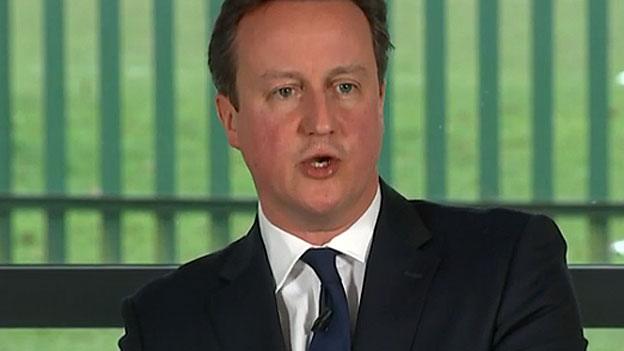
- Published4 April 2015
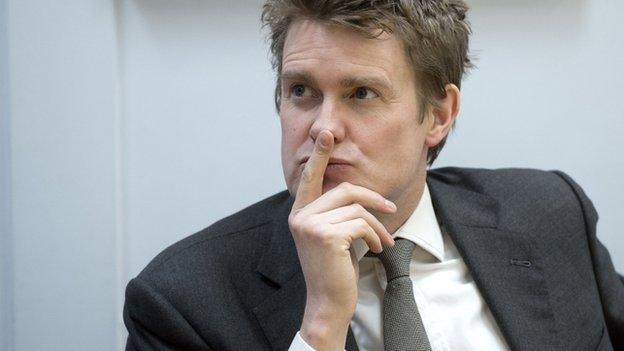
- Published3 November 2014
